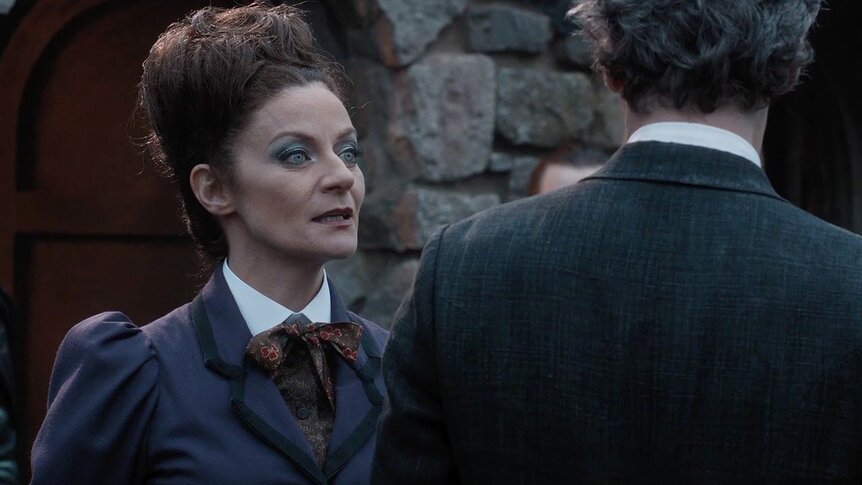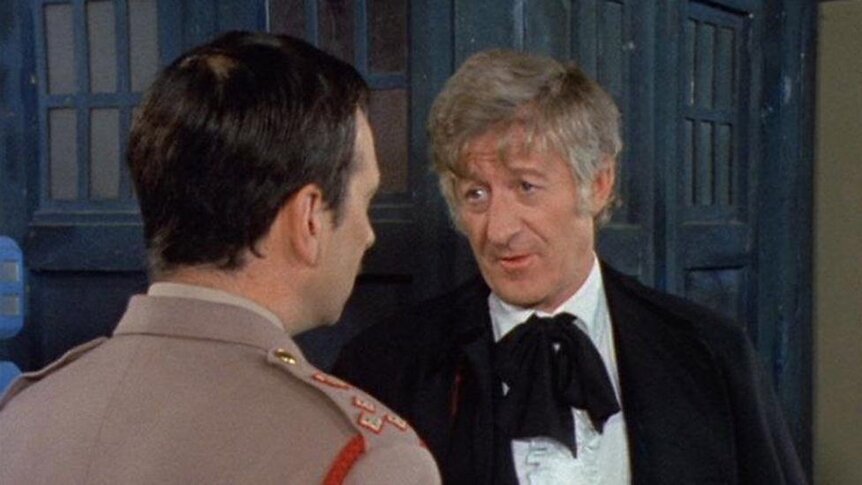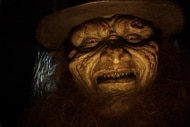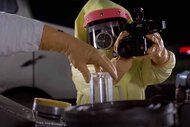Create a free profile to get unlimited access to exclusive videos, sweepstakes, and more!
How many brains does a Time Lord have? Doctor Who triples-down on Capaldi canon

Like the poignant climate-change-focused episode, "Orphan 55," the latest episode of Doctor Who, "Praxeus," puts a science fiction spin on real-life ecological crises. When an alien virus spreads through microplastics found in birds, human pollution basically becomes the cause of an extraterrestrial pandemic. The Doctor and Team TARDIS are on the case, of course, but what's all of this about the Doctor having multiple brains? Here's how one tiny moment in "Praxeus," reinforces a kooky Doctor Who fact: We don't know actually know how many brains the Doctor has, and we haven't for a while.
**Spoiler Warning: There are spoilers ahead for Doctor Who Season 12, Episode 6: "Praxeus."
As the Doctor (Jodie Whittaker) is trying desperately to put together various pieces of information in "Praxeus," she says: "Come on brains! Move it along!" Under his breath, Graham (Bradley Walsh) asks Ryan (Tosin Cole), "Did she say brains? Plural?"
Yes, she did, Graham. She very much did indeed. And is this the first time we've thought the Doctor has two brains? Even casual fans know the Doctor has two hearts, but is this multiple brains thing new? Well, yes and no. In the very first Jon Pertwee Third Doctor episode "The Spearhead From Space" (1970) it was established that the Doctor possessed two hearts, which casually asserted the idea they may have more than one of other things, too, like brains.
In the Peter Capaldi 12th Doctor episode "The Magician's Apprentice," Missy refers to her brainstem in the singular, implying she just has one brain, but then, in the episode "Extremis," when the 12th Doctor is tasked with executing Missy, we're told the fancy Time Lord-killing gizmo will "stop both hearts, and all three brainstems," which seemed to firmly establish that some Time Lords (like Missy and the Doctor) might have not one, not two, but three separate brains. (Or at least three brainstems.)
Doctor Who has always played fast and loose with just how much the Doctor remembers and recalls, despite having a larger brain, or, in the case of "Praxeus," and "Extremis," having more than one. Though the 11th Doctor (Matt Smith) seemed to have an excellent memory, and the 10th Doctor could even see his memory changing in "The Waters of Mars," other Doctors have been more forgetful, meaning that even if the Doctor does have three brains, recalling all that information is a spotty process. (In fact, a huge plot point of the current season is connected to memories the Master and the Doctor may have had involuntarily erased.)
The Doctor's spotty memory in "Praxeus" also funnily and specifically makes another reference to the Third Doctor episode "The Spearhead From Space." In the same scene where the Doctor mentions her "brains," she also briefly says "Autons?" This means she's wondering if the alien-plastic-based virus could signal the return of the plastic-based alien invaders known as the Autons. "The Spearhead From Space" is the first introduction of the Autons, controlled by the hive mind Nestene Consciousness, who use plastic-based automatons to carry out their dirty work.
The Autons were also the first major enemy of the Ninth Doctor (Christopher Eccelston), and their plastic-based mannequin invasion actually kicked off the Doctor Who comeback in the very first 2005 episode of the new series, "Rose." Later, in the Matt Smith 11th Doctor episodes "The Pandorica Opens" and "The Big Bang," Rory Williams (Arthur Darvill) was resurrected as an Auton version of himself, leading him to say, "Trust the plastic."
Obviously, in "Praxeus," the Doctor isn't dealing with the hive-mind-controlled plastic aliens of the Autons, but something a little simpler and far more insidious. This episode wasn't about making complicated canon connections — it was mostly a story about the Doctor thwarting a deadly alien pathogen with the help of human ingenuity and bravery. And yet, even in a standalone episode like "Praxeus," the Doctor proves that they still remember who they are, even if their memories are fuzzy. In Douglas Adams' The Hitchhiker's Guide to the Galaxy, Zaphod Beeblebrox infamously had information in one of his brains hidden from himself. And if you think that's a random connection, consider this: Adams wrote for Doctor Who from 1978 to 1979.
If, like Zaphod, one of the Doctor's brains contains secret information hidden from themselves, it could actually explain quite a bit.
















